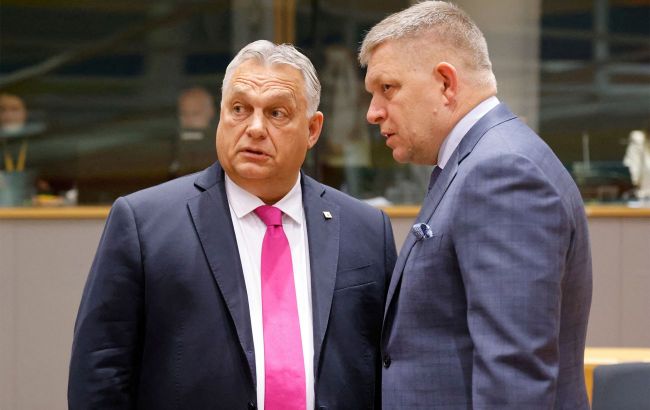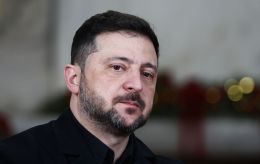Slovakia, Hungary refuse to approve Ukraine's strikes on Russia with Western weapons - Politico
 Photo: Robert Fico and Viktor Orbán (Getty Images)
Photo: Robert Fico and Viktor Orbán (Getty Images)
Slovakia, along with Hungary, refused to approve Ukraine's strikes against Russia with Western weapons provided to Kyiv. Both countries have regimes friendly to Moscow, reports Politico.
Upon arriving at the EU Council building in Brussels, EU chief diplomat Josep Borrell called for the lifting of restrictions on Ukraine's use of the weapons provided to it to defeat targets in Russia.
“The weaponry that we are providing to Ukraine has to have full use, and the restrictions have to be lifted in order for the Ukrainians to be able to target the places [from] where Russia is bombing them. Otherwise, the weaponry is useless,” Borrell said.
The morning meeting of EU ministers was also attended by Foreign Minister Dmytro Kuleba. An official familiar with the talks told Politico that Kuleba urged EU ministers to allow Ukraine to strike targets in Russia, saying the proposal can not be considered an escalation.
According to the official, Kuleba's call and Borel's calls for Kyiv to have the freedom to use weapons were supported at the meeting by France, Sweden, Latvia, the Netherlands, and Poland, with some noting that international law does not prohibit a country from entering the territory of an aggressor in self-defense.
Hungary and Slovakia, with the Moscow-friendly government, were against it.
According to Politico, relations between Hungary and the EU have long been difficult, but have deteriorated sharply since Budapest assumed the rotating presidency of the EU Council in July. A number of EU foreign ministers boycotted the proposed meeting in Budapest, opting instead to hold their own foreign affairs summit in Brussels.
When asked by a journalist why the meeting was held in Brussels and not Budapest, Borrell replied: “Because I decided so. I thought it was much more appropriate to do that in Brussels because some of the positions expressed by the Hungarian government go directly against the Common Foreign [and Security] Policy. It was much better to do that at home,” he added.
Following the meeting of foreign ministers in Brussels, Borrell said that many EU member states supported the operation of the Ukrainian Armed Forces in the Kursk region of Russia.

